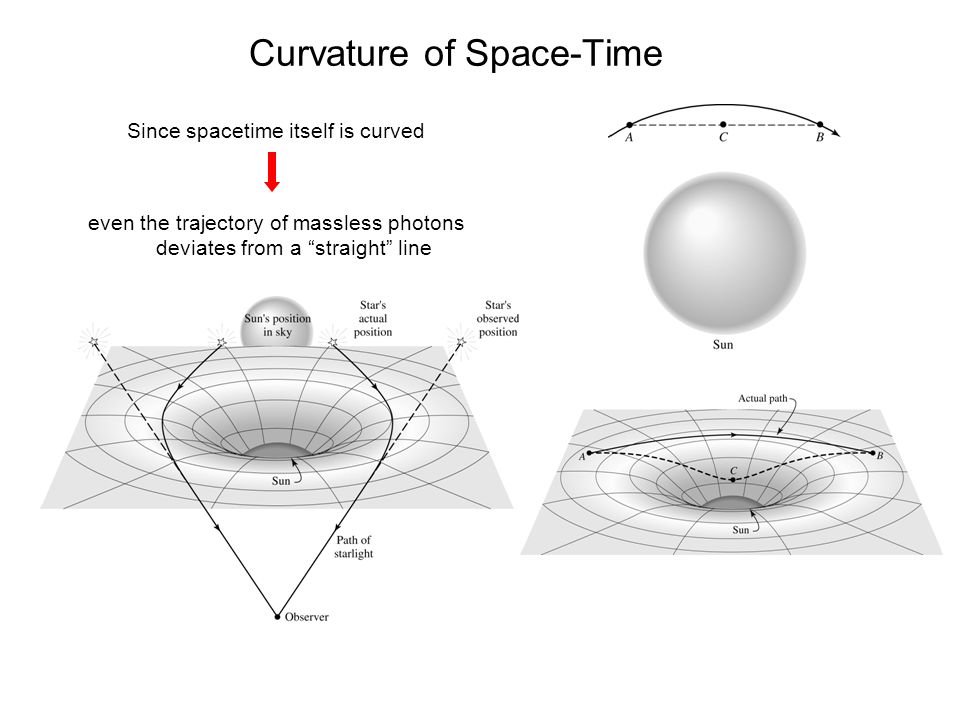
Time can be measured in all sorts of ways, some more accurate than others,
but the perception of its flow varies widely depending on the subjective
experience. That’s the distinction between physical and psychological time.
Psychological time is influenced and influences our cognitive systems.
It influences how we act and respond to information and events around us,
and the information and events around us influence it.
Boredom is one fascinating stimuli or lack thereof. According to
researches it makes us feel as if time is passing slowly: minutes can feel
like hours, things that happened yesterday feel like they happened a
week ago. Boredom digs us deep into the ground, stifling our performance;
it is associated with depression, lack of satisfaction, lack of alertness,
and other nasty effects. A new study has found that when experiencing
boredom we are prone to be more altruistic, empathic, and perhaps more
creative. The reason could be that boredom incites daydreaming or incites
the hope to escape from this mental state.
Routine resembles boredom but has a time-lapse effect, weeks go by so
quickly we may not notice them. Unsurprisingly, emotions are also
related to how time feels. For instance, when facing a threat, or in a
state of fear, time slows down.
Tying these together, a theory proposes that time perception is tightly
linked to how we pay attention — time has been monetized. If we had money for every hour in a
day, let’s say $24, then we would spend it with our attention. The parts of
the day where we allocate extra money are the ones that are felt slower.
Another way to think about it is to imagine it as a beat. The faster
the beat, the slower it feels.

Thus, a lack of stimuli leads to time warps; while over stimuli, by boredom accompanied by inaction, for instance, makes us feel trapped in a time cage.
Time can pass quickly on the internet, news get old fast, and boredom or routine follows. What are the emotional states affecting this awkward time dimension?
It begins with the war for attention and the information overload we are presented with every day.
“There are things you don’t know about that you absolutely need to know
about, and please remember this other thing too at the same time”, is what
is being shouted at us. It’s easy to fall prey and cave in to the pressure
to follow up, the new internet version of keeping up with the Kardashian.
What are worthy news and what are unworthy ones? What are the things
that captivate us and make us spend our precious attention coins,
consequentially dilating our time on them? There are many actors that
have different incentives and would benefit greatly from
our attention. They may bore us in a time capsule, making us feel
scammed and robbed, may fall into a routine, or may play
with our emotions.
The upfront players in the online space are advertisers, they keep the
machine running. Marketers know their craft of branding and exposure,
spamming us with their names. Their goal is to remind us that they exist,
and this is achieved through repetition.
Unfortunately, everything else has started to interact with us in the same
fashion. In marketing, popularity is key while with the rest it’s supposed
to be about values. Nonetheless, trendism is in vogue: “the belief that
an already-trending topic deserves to be promoted”. Repetition is even
praised as a strategy to brand one-self over and over again because
of the short shelf life of media, so that followers can spend enough
time to get an impression. Everything is a product.
Keep in mind that information is defined as anything that is surprising
and new, something of value. Things that tell us something we already know
are worthless. Repetition has become the norm, so much brain grinding
and mashing with the same topics over and over again — An eternity of
time passed on the same topics.
It’s even more upsetting that less than 60 percent of the web traffic
is human, the rest is fake (automated). This means a lot of the grinding we get
refurbished is based on metrics that don’t exist, using algorithms
that know us on a superficial level. An algorithm can hardly learn novelty,
at least not yet.
Hence, the unoriginality and predictability that is spreading fast is
nothing extraordinary.
Not limited to algorithms, that predictability permeates everything.
The web has dwindled in attempts at being daring, original, or standing
out. People love novelty and are seeking it yet it seems to fade away
remarkably fast. As soon as something new comes out it’s instantly
part of the copy-paste culture, part of the memetic. Additionally,
we’ve all become trained critics looking for the finest in every
little thing. It’s risky to bet on being audacious and easier to bet
on tried-and-tested. We’ve turned into the Edmund Burke in the Burke vs
Pain debate, or Hem in the “Who moved my cheese” book.
This clearly explains why nostalgia is such a business. It’s better to use the “good-ol’ days” with rosy retrospection as a backup rather than entering the unknown. The internet is too serious to allow things to go haywire — Stay in the tunnel and don’t divert.
We now talk about digital presence and digital identity and it
matters. It blurs the lines between professional, personal, and online
lives, mixing all of it in a bowl that is neither neat nor tidy. The internet
is important business!
In this era of hyper-usefulness and over-rationalization everything
has to serve an obligation, has to be straight-forward, has to intermix
work and social appearances. You have to watch your steps as there may
be unforeseen consequences that may be judged. Nothing disappears in
the online world. In consequence, we suppress our speech, we’re held
in the cage of time even more, we can’t escape boredom because it’s too
risky and too real. This recently has been coined as “social cooling”.
This opens the door for tribality, propaganda, and political affiliations. A great amount of discussions is diverted into political messages using the time jail to their advantage. Black PR, fake news, state trolls, all use repetition and emotional manipulation to spread ideas as viruses on the internet. The internet is a commodity.
We are watched, remembered, and measured deliberately, and not so deliberately. Privacy is a beloved issue we like to see brought up in the news. We’re on edges, we can’t make mistakes. “L’enfer, c’est les autres.”
“We have arrived at a version where everything seems to be just another version of LinkedIn. Every online space is supposed to get you a job or a partner or a stronger personal brand so you can accomplish the big, public-record goals of life. The public marketplace is everywhere. It’s an interactive and immersive CV, an archive. It all counts, and it all matters.” (The decline of Snapchat and the secret joy of internet ghost towns)
LinkedIn displays the epitome of this with its SSI, the Social Selling
Index, a metric to calculate how successful you are. This can’t be more
explicit. “By checking out your SSI, you’ll see how you stack up against
your industry peers and your network on LinkedIn.”
“There are things you don’t know about that you absolutely need to
know about, and please remember this other thing too at the same time”,
“furthermore, you are behind and need to be productive”.
As with real life, comparing yourself with others drags with it
the phantom of unhappiness. It sings along the tune of the thriving
productivity craze that has emerged — histrionic productivity. Seemingly
something wanted or needed in the age of multitasking and constant
interruptions.
Time runs fast when you see that everyone is already leading the race
and you’re far behind. Days are not enough to complete the never ending
TODO lists. We’re getting old so fast, how could we possibly keep up
before being discarded as an unwanted product! Guilty of not displaying
our labor; A worthlessness hole. How to be worthy in a place where
unworthiness is the norm. The wonders of neoliberalism!
Boredom may lead to creativity…
Then marketers know exactly our wish to escape and offer us a pre-packaged solution to our external validation needs. Using our time, we buy molds and frameworks advertised as metamorphosis.
How to genuinely break out of the cocoon.
How to not go the effortless apathetic advertised way.
How to take back control of time.
Adding to the statistic that 40% of the traffic online is fake, we have
to add that the actual contribution and participation of users is done
by a mere 1 to 3%. The rest are lurkers.
Boredom accompanied by inaction makes us feel trapped in a
time cage.
So what should we do to govern our content instead of the passive
consumption. Unfortunately, we start with a bad hand. It’s frightening
to be a voice on the fringe because the house plays against you.
Maybe if we moved to a different host or become hosts ourselves it would
change the rules. What we do to maintain our homes is certainly worthy
of our time. When you’re building your living space, you shouldn’t worry
about what happens in the neighbours houses.
Indeed, there are many barriers stopping us, making us think we’re not
good enough, making us believe we aren’t original nor interesting. Hence,
we keep quiet as to not bother the owners and roommates.
We then build a preference for ephemeral media, places where our voices
dissipate quickly, where we’re anonymous but can nevertheless talk
without holding ourselves.
Still, we are in the dungeon where no one can see, living an illusion in
a parallel time that doesn’t affect the current one.
You have to make the effort to step out.
Break the algorithms, use them to your advantage.
Then space-time curves on itself.

Time is relative, on the internet.
A watched pot never boils!
And this concludes the small amount of time I’ll get from you on the internet.
Because even this post is a repetition:
- TIME PERCEPTION
https://en.wikipedia.org/wiki/Time_perception
https://www.youtube.com/watch?v=VGe1M_z91iA
https://www.theguardian.com/science/2013/jan/01/psychology-time-perception-awareness-research
https://www.exactlywhatistime.com/psychology-of-time/time-perception/
http://cogprints.org/3125/1/Subjective_Perception_of_Time_and_a_Progressive_Present_Moment_-_The_Neurobiological_Key_to_Unlocking_Consciousness.pdf
https://fermatslibrary.com/s/does-being-bored-make-us-more-creative
https://www.researchgate.net/publication/21193823_Effect_of_boredom_proneness_on_time_perception
https://www.ncbi.nlm.nih.gov/pmc/articles/PMC4140165/
https://www.spring.org.uk/2011/06/10-ways-our-minds-warp-time.php
https://www.quantamagazine.org/reasons-revealed-for-the-brains-elastic-sense-of-time-20200924/
https://www.youtube.com/watch?v=zHL9GP_B30E
- ATTENTION PLEASE
https://www.nytimes.com/2015/08/03/your-money/what-is-our-attention-really-worth.html
https://warontherocks.com/2018/09/social-media-as-war/
https://medium.com/@enkiv2/against-trendism-how-to-defang-the-social-media-disinformation-complex-81a8e2635956
https://nrempel.com/posts/what-we-have-now-is-not-advertising/
https://lobste.rs/s/mwlrof/what_we_have_now_is_not_advertising
https://letsknowthings.com/episode144/
- GRIND IT
https://dictionary.reverso.net/english-cobuild/grinding%20media
https://blog.hootsuite.com/social-media-groundhog-day-why-you-should-embrace-repetition/
https://www.insidehighered.com/blogs/student-affairs-and-technology/7-years-social-media-repetition-time-be-bold-again
https://nymag.com/intelligencer/2018/12/how-much-of-the-internet-is-fake.html
https://www.forbes.com/sites/laurenfriedman/2016/08/02/why-nostalgia-marketing-works-so-well-with-millennials-and-how-your-brand-can-benefit/
http://www.adotas.com/2019/02/6-ways-use-nostalgia-marketing/
https://www.enginecommerce.com/nostalgia-marketing-lion-king-2019/
- SERIOUS
https://kevq.uk/privacy-vs-i-have-nothing-to-hide/
https://lobste.rs/s/mzamzy/privacy_vs_i_have_nothing_hide
http://www.iftf.org/statesponsoredtrolling
http://www.iftf.org/fileadmin/user_upload/images/DigIntel/IFTF_State_sponsored_trolling_report.pdf
http://www.iftf.org/fileadmin/user_upload/images/ourwork/digintel/IFTF_biology_of_disinformation_062718.pdf
https://www.ntd.tv/2018/02/21/memetic-warfare-spreading-weaponized-ideas-for-influence-and-control/
https://www.ifla.org/publications/node/11174
https://nixers.net/showthread.php?tid=2218
https://business.linkedin.com/sales-solutions/blog/g/get-your-score-linkedin-makes-the-social-selling-index-available-for-everyone
https://medium.com/the-graph/reflections-of-unoriginality-repetition-of-social-media-3cb330eca80f
https://www.theverge.com/2018/5/18/17366528/snapchat-decline-internet-ghost-towns
https://www.socialcooling.com/
- PRODUCTION
http://ewanvalentine.io/how-to-never-complete-anything/
https://medium.com/@_cbrown/my-response-to-ewan-valentine-aa7042f787f2
https://thezvi.wordpress.com/2017/04/09/youre-good-enough-youre-smart-enough-and-people-would-like-you/
https://www.reddit.com/r/slatestarcodex/comments/9rvroo/most_of_what_you_read_on_the_internet_is_written/
https://www.huffpost.com/entry/the-neoliberal-trap-of-th_b_9751594
If you want to have a more in depth discussion I'm always available by email or irc.
We can discuss and argue about what you like and dislike, about new ideas to consider, opinions, etc..
If you don't feel like "having a discussion" or are intimidated by emails
then you can simply say something small in the comment sections below
and/or share it with your friends.